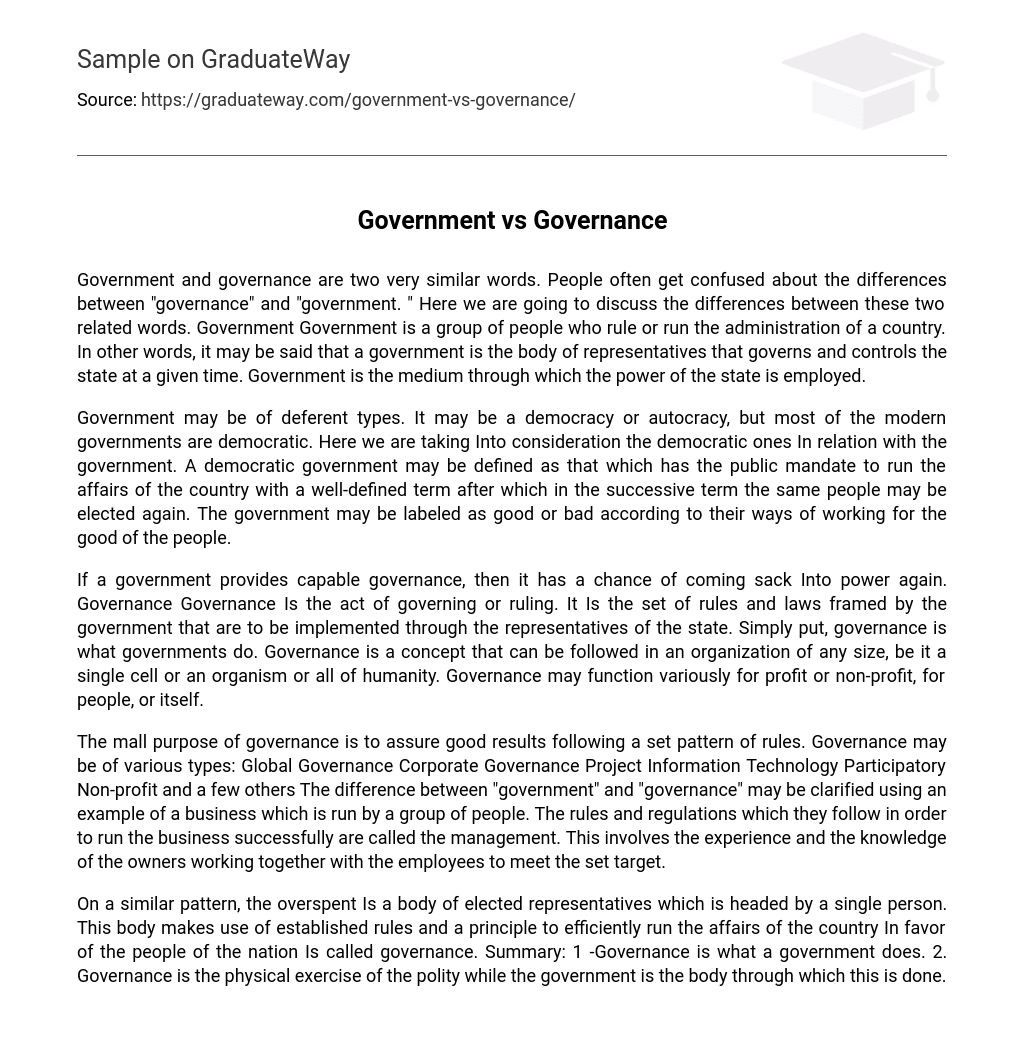The terms “Government” and “governance” are often confused, even though they have distinct meanings. Government refers to a group of people responsible for overseeing a country’s administration. It consists of representatives who govern and oversee the state at any given time, serving as the channel through which the state exercises its power.
Government can come in various forms, such as democracy or autocracy. Nevertheless, the majority of governments today are democratic. Therefore, we will focus on democratic governments. A democratic government is defined as one that has been granted a public mandate to govern the nation for a specific duration and allows the possibility of re-electing the same individuals in subsequent terms. Evaluating the effectiveness of a government depends on whether their actions effectively serve or harm the interests of the people.
If a government has the ability to govern, it also has the chance to regain authority. Governance involves governing and includes government regulations and laws that are carried out by state representatives. Essentially, governance encompasses government actions. This concept applies to any organization, regardless of size, whether it is a single cell, an organism, or all of humanity. Governance can have various objectives such as profit generation or serving non-profit purposes, benefiting individuals or existing for its own sake.
The primary goal of governance is to guarantee positive results by implementing a particular set of regulations. There are different types of governance, including Global Governance, Corporate Governance, Project Governance, Information Technology Governance, Participatory Governance, Non-profit Governance, among others. To demonstrate the contrast between “government” and “governance,” let’s consider a business managed by a team of individuals. The rules and policies they adhere to in order to achieve success in running the business are known as management. This entails utilizing the expertise and knowledge of both owners and employees to accomplish the established objectives.
On a similar pattern, governance refers to the body of elected representatives, led by a single person, which follows established rules and principles to effectively administer the affairs of the country for the benefit of its people. This body is known as the government. In summary, governance encompasses the actions and operations of a government, while the government itself serves as the entity responsible for implementing governance.





